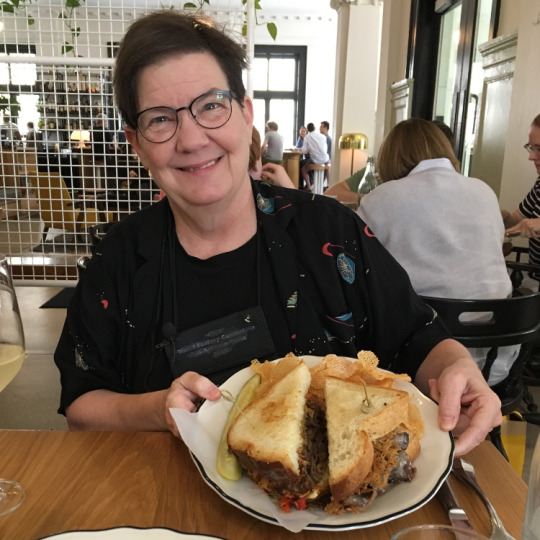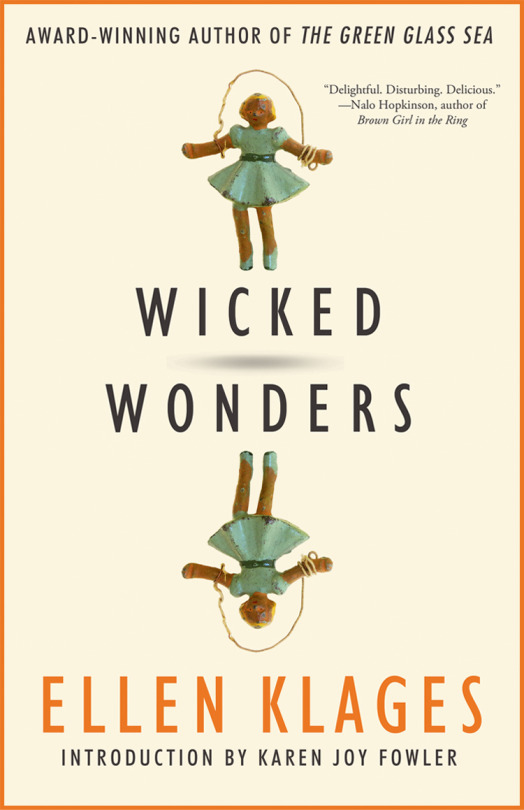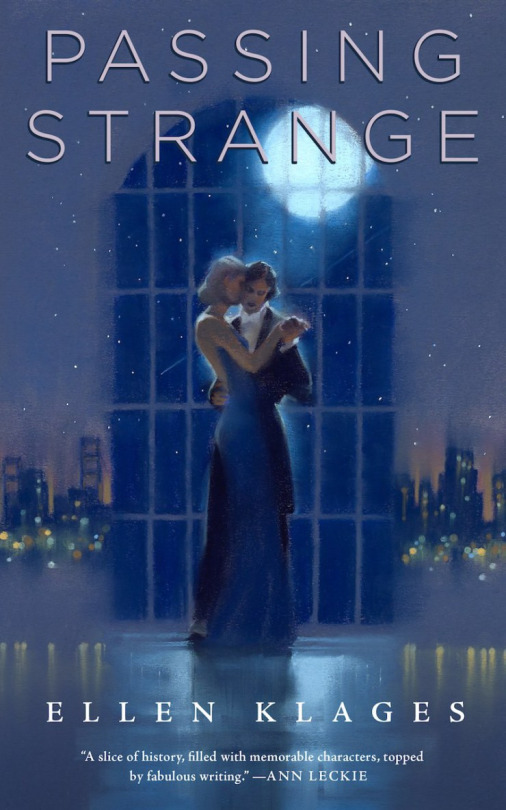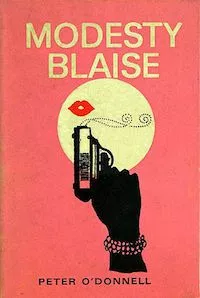Ellen Klages has a keen eye for the perfect details

Photo: Scott Edelman
FFFRIDAY recommends “Echoes of Aurora” from Ellen Klages’ World Fantasy nominated WICKED WONDERS.
As with Passing Strange, Klages’ eye for the perfect details, especially historical details, like the old-fashioned arcade machinery, really sells this story. The relationship moves fast, due to this being a short story, Klages does a good job of making me buy it. The mood is ultimately bittersweet, but not depressing. I liked that Jo wasn’t super young and got to star in her own love story.

The Hungarian ZSÓFI KÜLFÖLDIÜL OLVAS praises WICKED WONDERS.
I could describe the author’s novels in a volume with a marker: heart-warming. After repression, hatred, exclusion and other social problems (and of course not overlooked) and themes, it was a pleasure to read SFF writings where the biggest crises are a friend’s loss or the capture of the longing baby. By describing these, they sound really insignificant conflicts, but Klages possesses magic that makes it credible from the age of five (eg, “The Education of a Witch”) to teenagers who are growing up (eg Woodsmoke), actors and their problems, into his earlier stages of life.
In addition to the “childhood” themes, there are classic SFFs such as “Friday Night at St. Cecilia’s” where two dice drift into two entourage students in a dangerous adventure, and in a “Gone to the Library” a parallel world is revealed in front of a little girl, while learning in the real world the “magic” of the numbers. In addition, there are adult stories such as “Echoes of Aurora”, where a middle-aged woman returns to her childhood small town; “Goodnight Moons,” in which a mother must decide what she is sacrificing for her child; and I can not leave the list of “The Scary Ham”, which shows half-humorously, half-grotesque how it feels to clear up a lifetime of a felon after leaving.
Considering the full volume, we can read a variety of topics, in different approaches and genres. Not all of the writings were strong enough and memorable for me, but the overall picture is still more positive than negative. Most of the songs featured on the less fantastic items, I liked something like this: “The Education of a Witch”, “Woodsmoke” and “The Scary Ham”, towards the end of the book. Among the more adventurous stories, I enjoyed the stories of “Friday Night at St. Cecilia’s” and “Gone to the Library”, because they recalled my old, adventurous childhood readings, and Klages made these writings with great ideas (eg, at the end of a “parallel game” based on rules of the game or the magic of the numbers).
Translation from Hungarian courtesy of Google
Klages shares a meal with Scott Edelman in Episode 72 of Eating the Fantastic.
Our venue for this episode was the relatively new Whitfield at Ace Hotel. This was certainly the most picturesque setting for a meal I experienced in Pittsburgh, because the building which housed both hotel and restaurant was a century-old former YMCA.
We discussed why it took 40 years from the time she wrote the first sentence of her Nebula Award-nominated story “Passing Strange” to finish the tale, what a truck filled with zebras taught her about the difference between storytelling and real life, how cosplaying helped give birth to her characters, what she finds so fascinating about creating historical science fiction, why revising is her favorite part of writing, the reason she’s the best auctioneer I’ve seen in my lifetime of con-going, what she teaches students is the worst mistake a writer can make, how her collaboration with Andy Duncan gave birth to an award-winning novella, whether she still feels like “a round peg in genre’s polyhedral hole” as she wrote in the afterword to her first short story collection, and much more.

At TOR.COM, Klages suggests 5 Books About Women Who Make A Fuss.
Growing up, I was not a good girl. Good girls follow the rules, listen to their mothers, don’t make a fuss. They are quiet, polite, proper, and well-behaved. I rarely managed to pull that off. Branded a bad girl, I was sent to my room, grounded, and even—once or twice—threatened with expulsion from my stolid, conservative high school. Which was fine with me. Because…

Bad girls ask questions.
Modesty Blaise
by Peter O’Donnell
(Series, 1965-1996)In 1985, I was confined to bed for two weeks after some reasonably minor surgery. The TV set was a large, bulky box, and was in the living room. I am not a good patient. I get fidgety and am easily bored. So my friend Rebecca Kurland—one of the Sunday Night Poker players—came over to visit on the first Monday of my confinement. She brought me a book.
“There are eleven of these,” she said, laying it on my comforter. “I will bring you one a day, but no more. Not even if you beg.”
Not gonna be a problem, I thought, looking at the cheesy, sex-pot cover. It didn’t even remotely interest me. Sigh. I had only known Rebecca a few months.
“One per day,” she said again. “No matter what.”
I smiled gamely and nodded. We chatted for a few minutes, then she went home.
That afternoon, I discovered Modesty Blaise. I devoured the book. Totally smitten. I was on the phone to Rebecca by 7:30. “Please!” I said. “Just one more, now?”
“Tomorrow,” she said. “Around lunch time.” And then, because I suspect she just couldn’t resist, she said, “I told you so.”
For more info about WICKED WONDERS, visit the Tachyon page.
Cover design by Elizabeth Story
